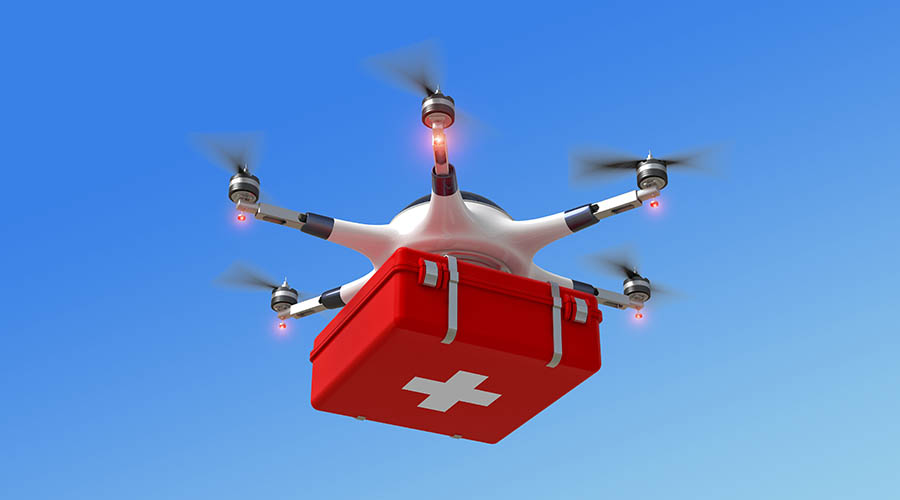EU Biodiversity in Grasslands (BIOG) project – A Perspective by BioCap
In 2022, BioCap, along with its partner, IMGeospatial ltd., received European funding from the Horizon 2020 UFO. The project aimed to investigate the use of small flying objects data to identify species-rich, biodiverse grassland.
In 2022, BioCap, along with its partner, IMGeospatial ltd., received European funding from the Horizon 2020 UFO. The project aimed to investigate the use of small flying objects data to identify species-rich, biodiverse grassland.
BioCap, founded in April 2019, aims to help manage the process of using natural solutions to mitigate climate change and reverse biodiversity loss in the UK countryside. Originally, they were looking at the use of data in selecting sites that might be suitable for matters such as biodiversity work and capturing and storing carbon. They aimed to explore whether biodiversity in grasslands can be measured by remote sensing data.
The Problem
Besides obvious problems such as climate change and biodiversity loss, another problem is the incorrect handling of ecosystems. Huge publicity is given to planting trees as a way to capture carbon. However, planting trees in the wrong places, such as in diverse grasslands, is very damaging to the ecosystem. Diverse species-rich grasslands are very rare in the UK, and by planting trees on them, this very precious ecosystem is destroyed.
The project aimed to map biodiverse grasslands and explore methodologies that could be used to discover unrecorded ones and by using mapping determine where to enhance such grasslands or improve their scale by adding more area to them. It will also show where grasslands should be protected and prevent tree planting there.
BioCap is now running a large pilot project in West Berkshire looking at the processes of managing natural solutions rather than focusing just on the data. They have partnered with statutory agencies, such as AONB, Natural England, the local wildlife trust, West Berkshire Council, and some other small charities and landowners. They are working on mapping the region to identify sites for biodiversity enhancement work, things such as tree planting, wetland creation, species-rich meadow creation and then use Biodiversity Net Gain funding through the planning system and potentially carbon offsetting to draw in the funds to help the landowners to get the work on the way.
This aims to not only improve biodiversity but also help the landowners to get a return on marginal farmland, which is not very profitable, and to capture carbon in the countryside. The final stage is to create a market or funding mechanism where natural capital such as biodiversity, carbon, nutrient neutrality, water storage, air and water quality can be traded and paid for.
Expected Impact
Without the funding, the project would not have been able to get going. As already mentioned, initially, the focus was solely on mapping and data, but it shifted to a more comprehensive approach of looking at the whole process of managing natural resources. For the initial mapping, BioCap used GIS information, Earth observational data from satellites, drone data and ground data. Those were processed by IMGeospatial, who is the co-receiver of the funding and also developed a technique for grassland discovery and scoring of its biodiversity. BioCap is still exploring the possibility of using drone imagery powered by AI and ML (developed by IMGeospatial) as a means to measure, monitor and verify progress on the mapped sites.
Besides this collaboration between BioCap and IMGeospatial, one of the most profound impacts of the funding for BioCap was the possibility of creating partnerships with not only the councils but, most importantly, with the landowners. The fact that BioCap was able to establish trusting, collaborative partnerships with them became one of their biggest strengths, as it is not an easy endeavour.
Further Impact / International Collaboration
The creation of BioCap’s marketplace is driven by climate change, carbon offsets requirements and by the new Environment Act in the UK which set a scene for biodiversity work and enables a new flow of money to landowners. It requires developers to evaluate biodiversity on the site, then add 10% to it, (‘biodiversity net gain’) and then re-create this diversity either on-site or off-site. Landowners will be able to create ‘habitat banks’, practically a new habitat with measured biodiversity which they are able to sell to the developers who need to re-create biodiversity from their sites.
This mechanism is quite UK specific and therefore, not that easily replicated abroad. However, there is an opportunity for the UK to become a source of learning for other European countries. Moreover, if done well, this might be a way to reshape the management of the farming system in the UK and a good step towards more regenerative farming. Ed Cooper, BioCap concluded:
BioCap is delighted to have received feasibility funding from the Horizon 2020 INNOSUP funded UFO project, of which Innovate UK KTN is a Partner. UFO’s Open Call webinar gave us a good steer that aided our application and the funding enabled BioCap to build local partnerships and trust which has resulted in BioCap winning contracts from West Berkshire Council and others. We are hopeful that the AI/ML technology development will be utilised in future to remotely identify diverse grasslands.
For more information on UFO project, visit https://www.ufoproject.eu/
For more information about BioCap, visit https://www.biocap.org.uk/
Related programme

Emerging Industries New Value Chains Boosted by Small Flying Objects (UFO)
The Horizon 2020 (H2020) funded UFO project coordinated by Aerospace Valley, France, was launched in May 2020 with a budget of more than €4.3 million.

